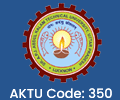Reasons to choose this course
What is the degree in Civil Engineering about?
Civil Engineers are involved in the assessment, planning, design, construction, operation and maintenance of physical resources such as road and rail systems, bridges and tunnels, docks, harbours, sea defences, airports, dams and reservoirs, water supply systems, pollution control systems, mines, and structures associated with energy supply. In addition, they are involved in ensuring the strength, stability and serviceability of building structures.
How is the course delivered?
This course is delivered through lectures and practicals. The practicals, time spent in construction laboratories and computer laboratories; represent approximately 40% of the course and the lectures or tutorials make up about 60% of the course.
What facilities are available?
State of the art computer laboratories with a wide range of civil engineering, construction and quantity surveying software and internet access to standards, regulations and legislation. Civil engineering laboratories for Survey, Geo Technology, Transportation, Building Material, Applied Mechanics, Fluid Mechanics. Besides this seminars are conducted on regular basis to make students aware about the latest developments in the field of Civil Engineering.





























